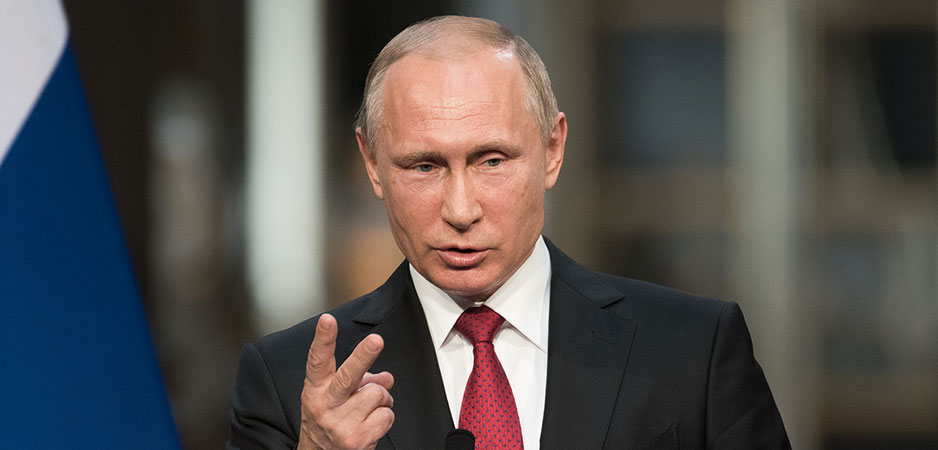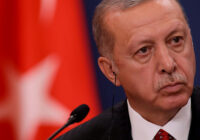On July 3, the Russian central election commission announced the results of the nationwide vote on constitutional reforms, the biggest shake-up of the constitution since it was adopted in 1993. According to official data, 77.92% of voters, or 57.7 million people, cast their ballots in favor of the reforms, with a 67.97% turnout.
The vote took place between June 25 and July 1, with the voters being asked to decide on a myriad of unrelated amendments to the Russian Constitution — 206 to be exact — in a single package. For example, the proposed amendments included a passage on “marriage as the union between a man and a woman,” a stipulation of the primacy of the Russian law over international treaties but, most importantly, a “zeroing” of Vladimir Putin’s presidential terms. The latter allows Putin to disregard his 20-years-long tenure and run for two more terms in 2024 and 2030.
The voting turned out to be an unapologetic attempt to pull the wool over the public eye. While achieving the figures he wanted, Putin may have sacrificed popular trust in the electoral system for good. From now on, any elections in Putin’s Russia will be treated with skepticism and can hardly remain a source of legitimacy for his protracted tenure.
Why a Nationwide Vote?
The nationwide vote was the most salient but the least decisive part of the constitutional reform procedure. It must be noted that, according to Russian law, the amendments to the constitution do not require a popular vote. Any amendments to Chapters 3 through 8 of the constitution come into force after being approved by legislative authorities of at least two-thirds of the constituent entities of the Russian Federation. In fact, the constitution had already been amended four times using this procedure before 2020: Two amendments came into force in December 2008, a third in February 2014, and a fourth in July 2014. To amend chapters 1, 2 and 9, which effectively determine Russia’s political system, a new constitution must be adopted through a more rigorous process, which includes a nationwide referendum.
Russia: The Start of Sovereign Democracy?
Similar to the previous four cases, the 2020 amendments concerned Chapters 3 through 8 and did not require a referendum. However, when Putin first proposed the new amendments during his annual address to the federal assembly on January 15, he stressed that the amendments should be subject to approval by Russian citizens. The Kremlin and state-owned media claimed that this showed Putin’s willingness to go the extra mile and to showcase his confidence in national support for the reforms.
By late February, the Russian parliament proposed the so-called nationwide vote, a special voting procedure, not subject to the Russian law on referendums. The head of the central election commission, Ella Pamfilova, suggested that the vote should be an “exclusive, one-time, unique event” to avoid questions regarding the vote’s compliance with existing legislation. Instead of references to the existing laws, the procedure for the nationwide vote was described in the same draft bill as the constitutional amendments.
Wrong Timing
The amendment procedure was seemingly designed as a “special operation,” and its timing was carefully planned. It was initially scheduled to be completed before the May 9 military parade dedicated to the 75th anniversary of the end of the Second World War. If passed quickly, culminating with the parade, the whole procedure might have played well in Putin’s favor and would have been perceived by the public as victorious and unifying reform. This was important, as a prolonged public discussion would inevitably attract attention to Putin’s attempt to reset his presidential terms in 2024.
The legally required procedure unfolded smoothly, as it was well planned and executed by all parties involved. Following Putin’s address to the federal assembly, the draft bill of new amendments was fast-tracked through three readings in the State Duma, the lower house of the Russian parliament, and approved by the upper house, the federation council, on March 13. The next day, Putin signed the law, which was subsequently published on the government’s official website. Russia’s constitutional court approved the amendments on March 16.
The nationwide vote was initially scheduled for April 22, with the intention to finalize the procedure before May 9. While the amendments had passed all the legally required stages and entered into force by mid-March, the vote was intended to legitimize the process and create a perception of popular approval. However, the neat plan was disrupted by a factor outside of Kremlin’s control: the COVID-19 pandemic.
Russia’s health-care authorities reported first coronavirus cases on January 31, when work on the constitutional amendment in the Duma was already well underway. The number of cases in Russia was still relatively low in late February when Putin publicly announced the date of the vote. In March, infection rates both in Russia and around the world have become truly worrying, with the World Health Organization declaring a pandemic. The Kremlin had no option but to review its plans, and on March 25, Putin announced that the vote would be rescheduled for a later date.
As a consequence, the nationwide vote was transformed from an asset into a burden. It lost its symbolic flair as Putin’s personal victory on the eve of Victory Day and instead started generating a sober public discussion. A mid-June survey by reputable Russian sociologist Sergey Belanovsky indicated that zeroing of Putin’s presidential terms was the least popular amendment in the proposed set of reforms, and the more people learned about it, the less likely they were to vote in favor of the reforms.
Combined with the dampening effect of COVID-19 on Russia’s economy and health-care system, a favorable result suddenly became rather unlikely. It would have been equally problematic to abandon the vote, as not only was it promised to the public, but also specifically stipulated in the law on the amendment in question. Two months into lockdown, Kremlin was facing a timing dilemma: If the vote was not announced by the end of May, it would overlap with the regional election campaigns starting in July and August. This would shift the focus of voters and diminish the legitimizing effect.
Pressured by the deadline, Putin rescheduled the vote for July 1. Subsequently, the election commission unprecedently introduced one week of early voting, from June 25 to 30, citing the need to minimize social contact during the pandemic. On June 1, when the vote was announced, Russia’s authorities reported over 9,000 new cases. The official numbers decreased to around 7,000 new cases per day during the voting week.
PR Exercise
The long preparation did not prevent the vote from turning out to be dubious both in form and in substance. From the very first day, social media was flooded with images of polling stations arranged on tree stumps, park benches and even in car trunks. After all, the central election commission encouraged outdoor balloting under the pretext of COVID-19 precautions. To mobilize voters, authorities organized lotteries, with prizes including apartments and cars. Every person turning out for the vote was also eligible to receive vouchers valid at supermarkets, museums and restaurants. Journalists have found that they were able to cast their vote twice, while the head of the election office in Omsk happened to win an apartment in the lottery.
Independent monitoring became next to impossible due to the duration of voting, while ballot boxes were left unattended after closing hours. Monitoring was often obstructed by authorities in broad daylight. During one incident, a policeman broke the arm of David Frenkel, a journalist who was covering the vote at a St. Petersburg polling station.
When the result was announced, it came as little surprise. While the Kremlin spokesman, Dmitry Peskov, described it as a triumphant vote of confidence in Putin, opposition politicians, independent observers and electoral experts have been far more critical. Russia’s largest and most reputable election watchdog Golos reported that the vote failed to meet both Russian and international standards due to the lack of legal framework, procedural violations, forced voting and mass falsification of votes. Golos described the vote as a PR exercise aiming to spin public perception. Sergey Shpilkin, a well-known Russian electoral statistics expert, published evidence of widespread fraud. He identified over 22 million cases of irregular voting, which might indicate that around 45% of all votes were falsified.
The Big Picture
The constitutional reform is only the first step in a larger political process currently taking place in Russia. Putin is about to enter a transition period as his fourth presidential term is scheduled to end in 2024. He also desperately needs the United Russia party to secure a comfortable majority in the elections to the Duma in 2021. Without overwhelming control over the legislature (now the United Russia has over two-third seats in the Duma), he might face many unpleasant risks, including that of being impeached.
The referendum has demonstrated that the upcoming parliamentary and presidential campaigns will become increasingly stressful for Putin’s system. Surveys by all major Russian sociological research centers (FOM, VTsIOM, Levada) indicate that both Putin and United Russia’s approval ratings have been steadily decreasing since 2016 in the context of a stagnating economy and a series of unpopular decisions made by the government. There is little indication that the constitutional reforms will have a positive impact on this dynamic.
On the contrary, the nationwide vote has raised questions about Putin’s legitimacy and authority, not just among the general public but also the regional elites. Thus, the Nenets Autonomous District became the only region to openly rebel against the constitutional reforms: 55.25% of local voters opposed the amendments, according to official data. Most importantly, this figure demonstrates that local elites who were entrusted with delivering the results were not eager to achieve success by any means necessary. After the vote, the district’s governor, Yury Bezdudny, pointed out that the people used this opportunity to vote against the Kremlin’s policies in the region, especially the recently proposed merger with neighboring Arkhangelsk.
The nationwide vote leaves Putin with a delegitimized voting procedure as well as significant cracks in his image of a popular leader. Going forward, this will certainly create uncomfortable situations for the Kremlin around upcoming elections.
The views expressed in this article are the author’s own and do not necessarily reflect Fair Observer’s editorial policy.
Support Fair Observer
We rely on your support for our independence, diversity and quality.
For more than 10 years, Fair Observer has been free, fair and independent. No billionaire owns us, no advertisers control us. We are a reader-supported nonprofit. Unlike many other publications, we keep our content free for readers regardless of where they live or whether they can afford to pay. We have no paywalls and no ads.
In the post-truth era of fake news, echo chambers and filter bubbles, we publish a plurality of perspectives from around the world. Anyone can publish with us, but everyone goes through a rigorous editorial process. So, you get fact-checked, well-reasoned content instead of noise.
We publish 2,500+ voices from 90+ countries. We also conduct education and training programs
on subjects ranging from digital media and journalism to writing and critical thinking. This
doesn’t come cheap. Servers, editors, trainers and web developers cost
money.
Please consider supporting us on a regular basis as a recurring donor or a
sustaining member.
Will you support FO’s journalism?
We rely on your support for our independence, diversity and quality.






